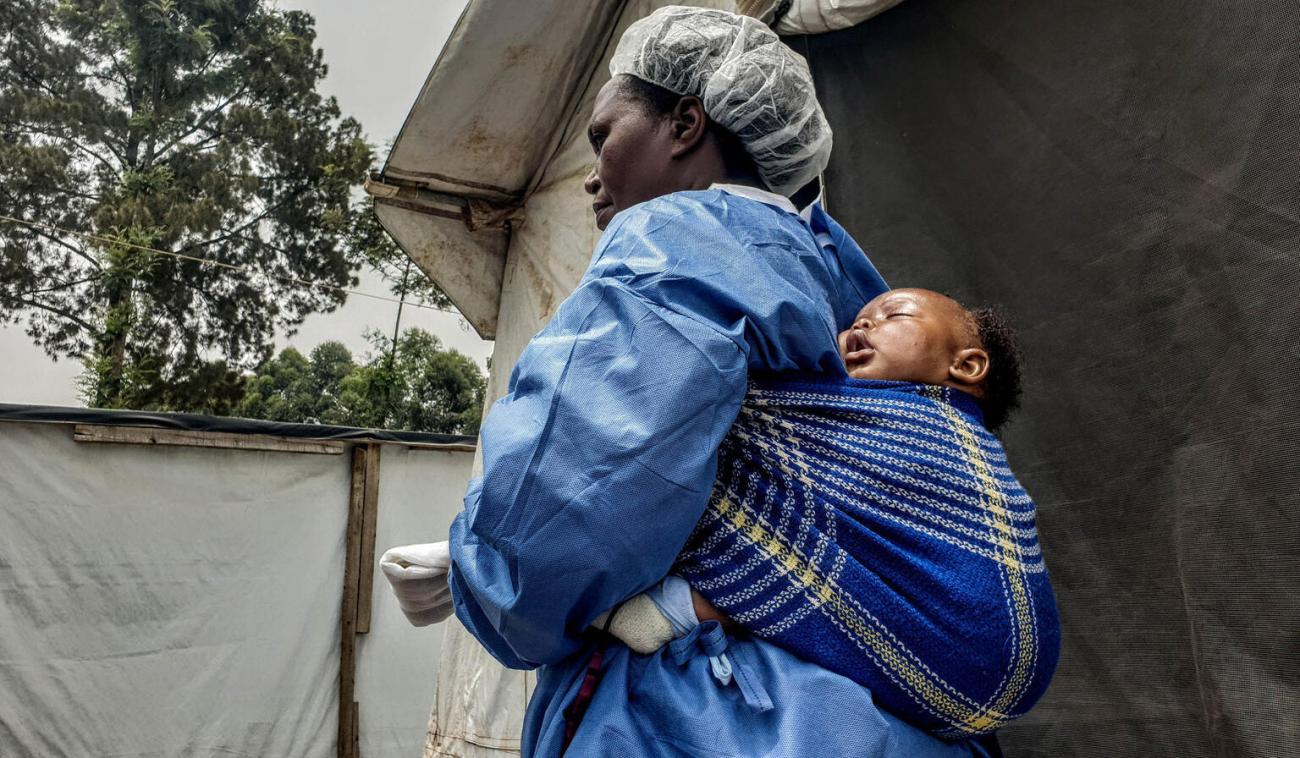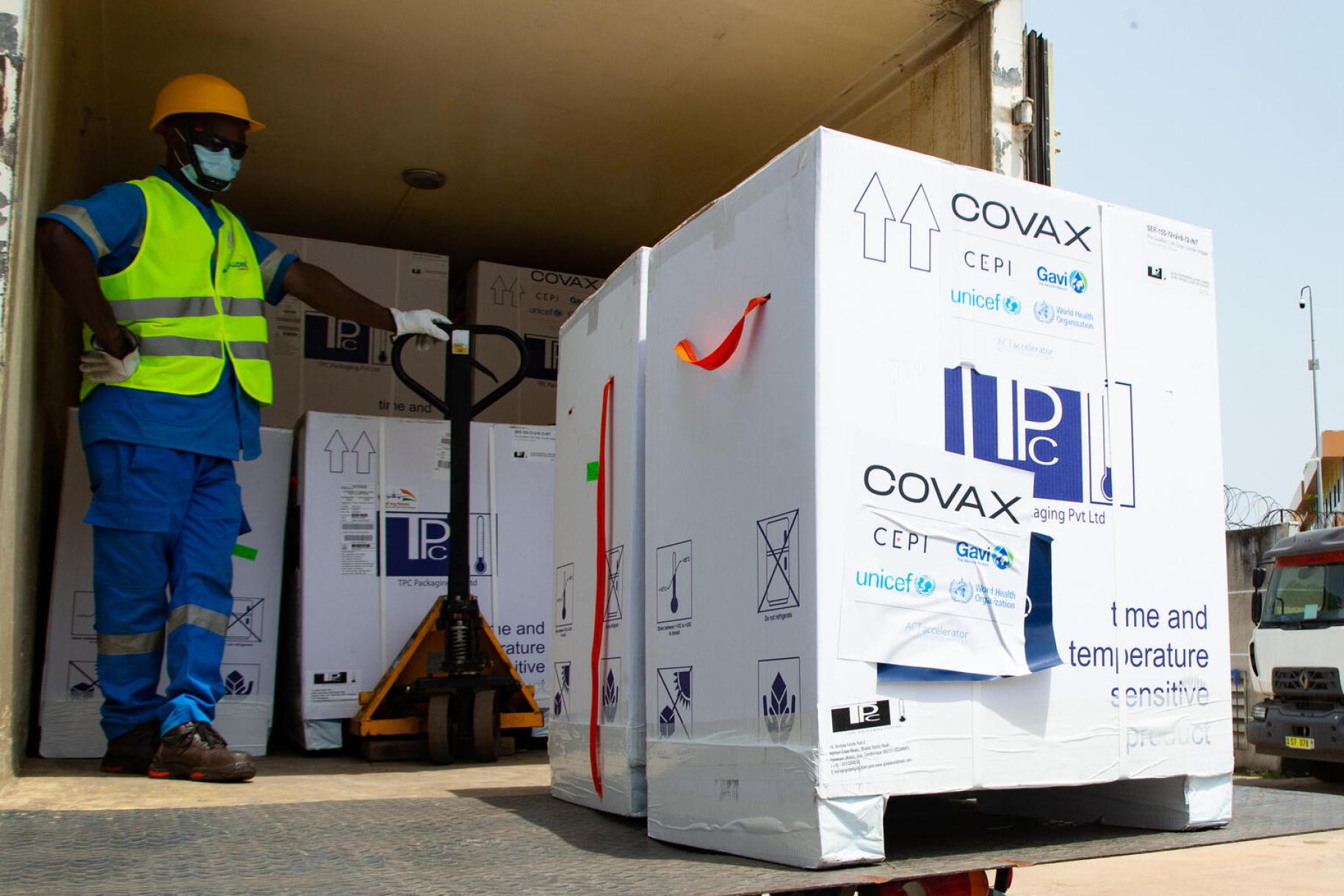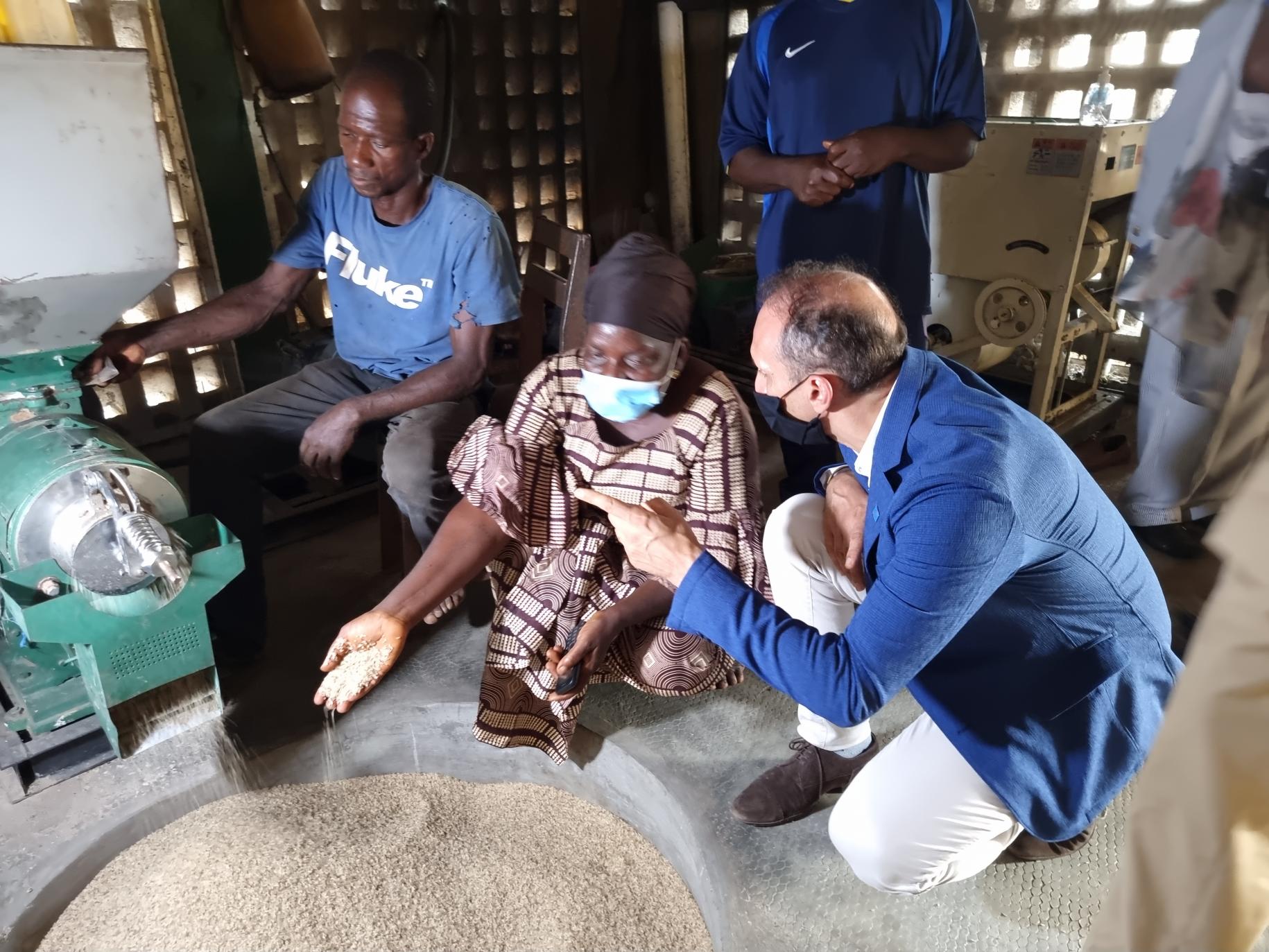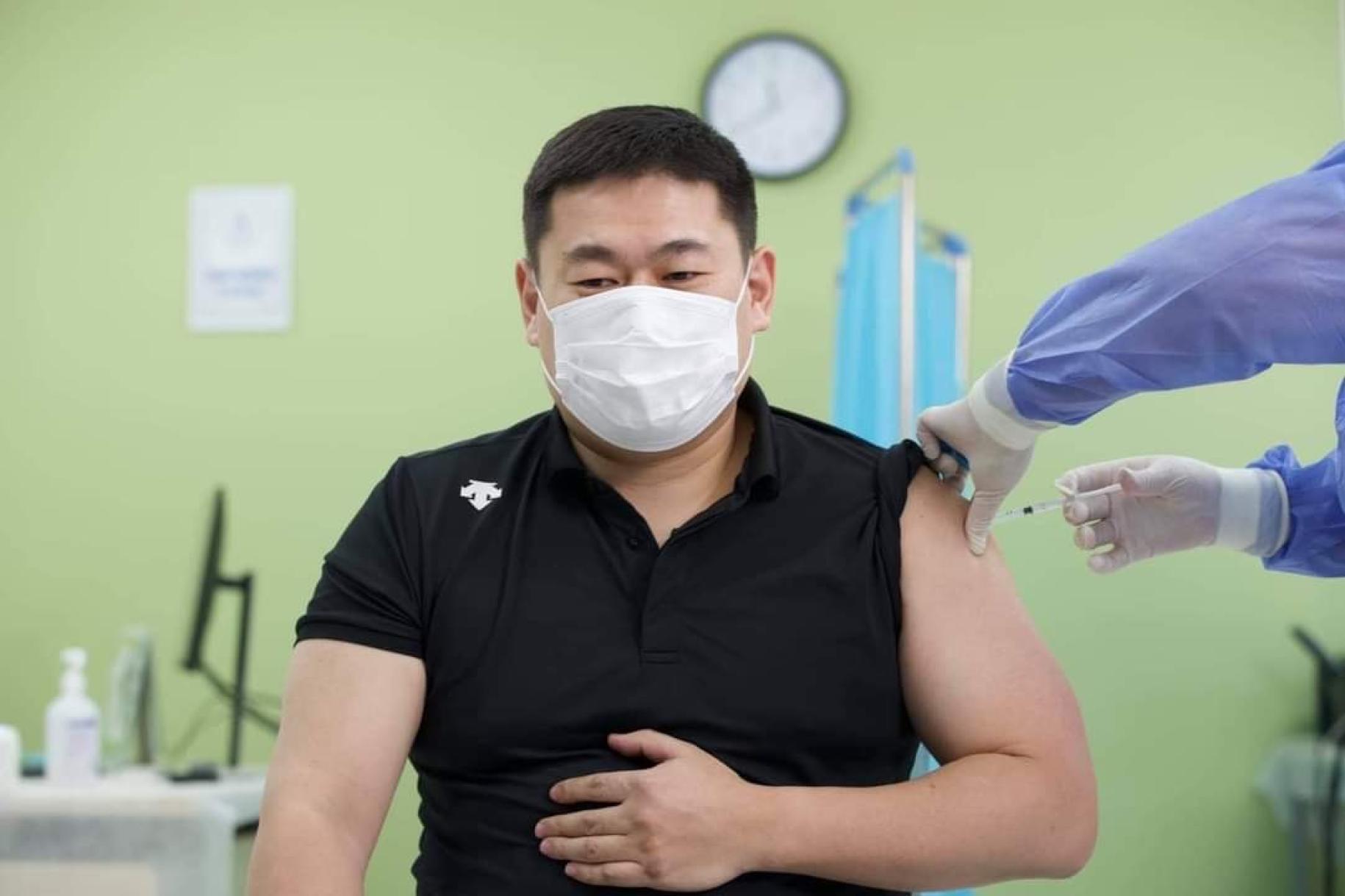Updates from the field #38: UN Teams combat COVID-19 and a resurgence of Ebola

UN country teams across the world are playing a critical role as they support local and national authorities to rollout vaccination efforts. They are also taking immediate and proactive measures to curtail the rise of Ebola cases in countries like the Democratic Republic of the Congo and Guinea.
Today, we highlight some of these efforts.
Cabo Verde
The UN team on the ground in Cabo Verde is proud to inform that the country is confirmed as one of the first African countries to receive the first allocation of COVID-19 vaccines under the COVAX facility. In the next few weeks, Cabo Verde will be able to purchase and deploy vaccines for nearly 200,000 people, which represents 35 per cent of the population. The focus will be on the most vulnerable groups.
For the past four months, the World Health Organization (WHO) and the UN Children's Fund (UNICEF), under the leadership of the Resident Coordinator, Ana Patricia Graça, have been working with the World Bank to support the government to develop a national vaccination plan and apply for COVAX. The World Bank also approved an additional funding of US $5 million from International Development Association for affordable and equitable access to vaccines.
This is the first World Bank-financed operation in Africa to support a COVID-19 immunization plan and to help purchase and distribute vaccines under COVAX. The additional financing will be used to buy 400,000 doses of COVID-19 vaccines, as well as personal protective equipment including masks and other medical supplies to ensure an effective vaccine rollout.
Colombia
We have an update from our UN team in Colombia, led by acting Resident Coordinator Jessica Faieta. With the support of the team there, authorities have joined the COVAX facility, which began vaccine rollout a few days ago.
Colombia is one in a handful of countries in Latin America and the Caribbean in the first phase of the COVAX-related vaccine rollout. To help authorities prepare, the Pan-American Health Organization (PAHO) is providing guidance and support with the vaccination plan, which prioritizes those most at risk.
Colombia is also one of the 31 countries that are using a global platform developed by WHO, UNICEF and the World Bank to evaluate countries’ readiness for COVID-19 vaccines.
The work taking place in Colombia is co-led by the health authorities and PAHO, with UN entities, non-governmental organizations, and other national partners. The focus is to boost preparedness for the vaccine rollout at the local level, reaching the most vulnerable populations, as well as monitoring, evaluation and documentation of lessons learned.
Côte d’Ivoire
Côte d’Ivoire became the second country in Africa to receive COVAX vaccine, that’s after Ghana. Our UN team on the ground is proud to have supported authorities in this effort.
The country has received more than half a million COVID-19 vaccine doses, which were transported across the world by UNICEF.

The UN Resident Coordinator, Philippe Poinsot, also welcomed the efforts of all partners who have contributed to this massive global and country-effort with meticulous planning around logistics, preparedness and distribution, backed by the UN family, committed to leave no one behind.
On Monday, 28 February, the vaccination will kick off, prioritizing health workers and other more exposed, at-risk groups. The UN team has repurposed over US $12 million to support Côte d’Ivoire to address the multiple impacts of the pandemic.
Democratic Republic of the Congo
In addition to responding to the COVID-19 pandemic, the UN team in the Democratic Republic of the Congo is also supporting authorities to tackle a resurgence of Ebola. Vaccination teams are working in the northeastern region, where, according to official figures, of the four people confirmed with the disease two have died.
WHO and UNICEF, as well as other partners are mobilizing to support the response, rehabilitating treatment centres and boosting contact-tracing capacity. Communication campaigns are also helping combat misinformation among local population to promote safe vaccination.
Guinea
In Guinea, the UN team went on a four-day mission to assess the situation in the southeastern region of Nzérékoré, where the first case of Ebola was reported. The mission is led by Resident and Humanitarian Coordinator, Vincent Martin, with representatives from the Office of the High Commissioner for Human Rights (OHCHR), the Food and Agriculture Organization (FAO), the World Food Programme (WFP) and WHO.

Less than 24 hours after the official declaration of the epidemic, the UN Humanitarian Air Service, with logistical support from WFP, organized a first humanitarian flight to the area. It carried personal protective equipment for health care personnel, assistance kits for infected people and disinfection equipment.
The UN delegation met with local authorities and community leaders and supports local communities to adopt barrier actions and to follow the measures announced by the Government.
The UN team also took part in a crisis meeting organized by national authorities to rollout a rapid contact-tracing mechanism to assess the spread of the disease and establish an effective response plan. This includes emergency vaccine distribution, case management, crisis communications, and border management.
Mali
In Mali, the UN team, led by the Deputy Special Representative and Resident and Humanitarian Coordinator, Mbaranga Gasarabwe, is supporting national efforts to stop the spread of COVID-19 and vaccinate the population.
The team is purchasing nearly 8.5 million doses of vaccine for the national immunization plan. The purchase is being made with nearly US $5 million in financial support from UNICEF and the World Health Organization. This brings the total to what the UN has contributed to the COVID-19 response in Mali to $15 million. UNICEF – together with the World Bank, the Global Fund, and GAVI Alliance – has procured, among other materials, half a million items of testing equipment, more than 640,000 masks and other personal protective items.
WFP scaled up emergency food and nutrition initiatives to help nearly 1 million people in the central and northern regions. WHO is helping community hospitals on how to manage COVID-19 cases.
With the help of digital influencers, the UN team is also working to sensitize people about the virus on social media. The UN Development Programme (UNDP) hired 60 community mobilizers from the National Centre for Volunteers, which is supported by UN Volunteers (UNV), to sensitize young people, religious leaders, women's associations and traditional chiefs on actions to prevent the spread of the virus.
Mongolia
23 February marked a major milestone in Mongolia as that is when the country rolled out its first batch of COVID-19 vaccines. The UN team there, led by Resident Coordinator Tapan Mishra, has been supporting authorities to prepare for this and for Mongolia’s inclusion in the COVAX facility.

WHO and UNICEF have played a key role supporting the national vaccination plan, also ensuring that the vaccination effort starting today first reaches priority groups, including health care workers and other at risk groups.
The UN Team is helping authorities to secure vaccines to cover 60 per cent of Mongolia’s population this year—that’s some 2 million people.
WHO helped to coordinate the vaccination plan and also trained health and front-line workers at national and local levels, ensuring safety monitoring and surveillance. UNICEF provided support for cold and supply chains, as well as in working with communities to counter misinformation and build trust in vaccines and in the health system.
Philippines
From the Philippines, the UN team, led by Resident Coordinator Gustavo Gonzalez, has been supporting the Government with their COVID-19 readiness assessment as well as a vaccination plan.
The UN is also supporting the Asian Development Bank’s and the World Bank’s efforts to define a suitable financing model for the country’s vaccination plan.
The team is helping the Government with national risk communication and community engagement. They have trained more than 2,000 health workers to help them address vaccination hesitation, myths and misconceptions.
WHO and UNICEF have been leading the health response. Through the COVAX facility, the UN team has committed to providing 44 million doses of vaccines to address the needs of 20 per cent of the population this year. The Government plans to vaccinate 60 million people this year and the entire population by 2023.





































